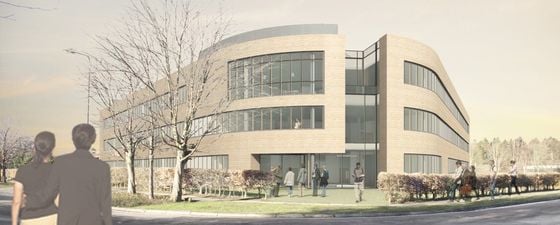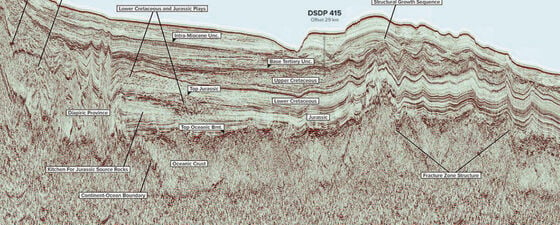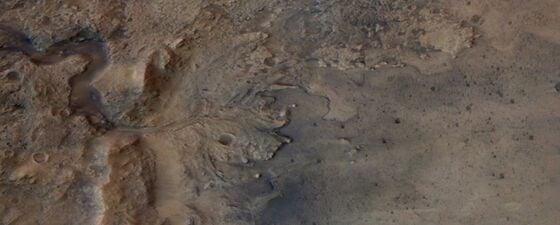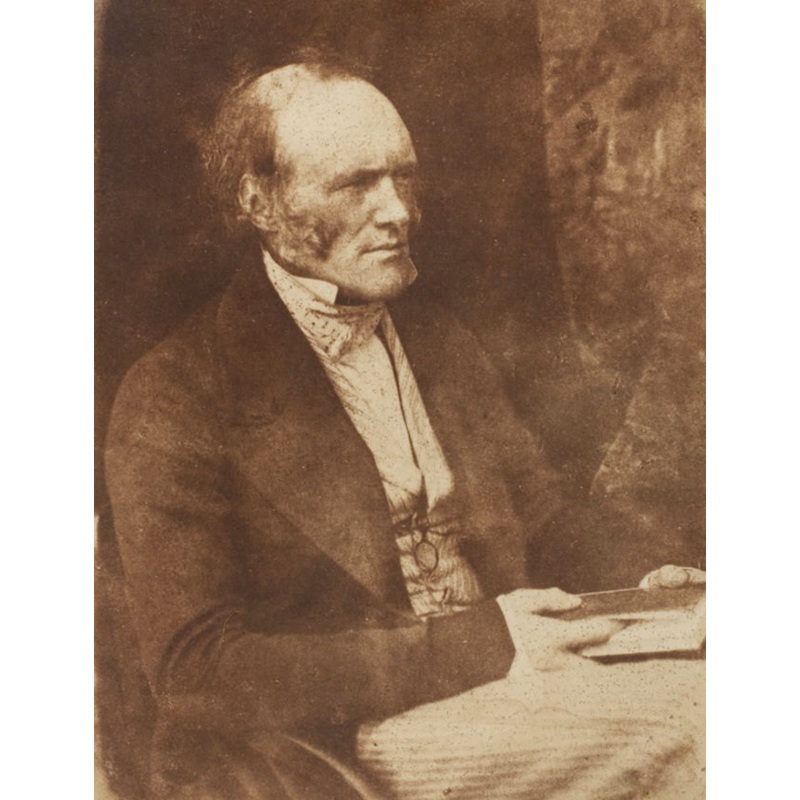 Charles Lyell by David Octavius Hill, c1843-47Work has started on the new £20m Lyell Centre at Heriot-Watt University’s Edinburgh Campus with a ground breaking ceremony at the site.
Charles Lyell by David Octavius Hill, c1843-47Work has started on the new £20m Lyell Centre at Heriot-Watt University’s Edinburgh Campus with a ground breaking ceremony at the site.
The Centre will be the Scottish headquarters for the British Geological Survey (BGS) as well as a major joint BGS/Heriot-Watt University research centre for geological, petroleum and marine sciences.
Scheduled for completion in early 2016, the Centre will establish in Scotland a global centre of excellence based on research synergies and collaboration. It will bring together key expertise from both institutions as well as an £8.5m investment in top-level academic recruitment from around the world, providing a huge opportunity for earth and marine science in general and for Scotland in particular.
Scotsman Sir Charles Lyell (1797–1875) was one of the leading geologists of his day and a close friend of Charles Darwin. Author of the seminal work Principles of Geology, which popularised James Hutton’s theory of uniformitarianism, he was also married to the daughter of geologist Leonard Horner, founder of Heriot-Watt University in Edinburgh. So it is fitting that a new research centre at Heriot-Watt has been named after such an important figure in the history of geological study.
The emphasis of the Centre’s work will be at the intersection of the earth and marine sciences. Research in the Lyell Centre will play a key role in finding pragmatic solutions and providing evidence-based informed and reliable opinions in areas of energy supply, environmental impact and global climate change, where inputs have traditionally been polarised. Its work will be both socially and industrially relevant at national and international scales.
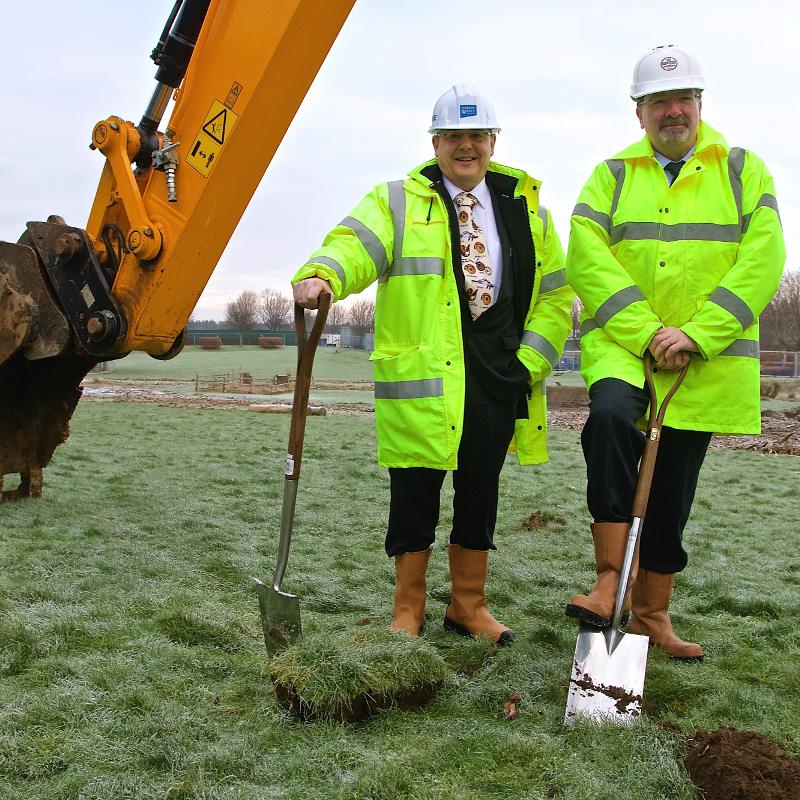 Professor Steve Chapman and John Ludden at the Lyell Centre ground breaking ceremony.Professor Steve Chapman, Principal of Heriot-Watt University, said, “This is the physical start of a tremendous project, and is the result of many months of dedicated work behind the scenes. The Lyell Centre will provide a huge opportunity for earth and marine science in Scotland and globally, commensurate with Heriot-Watt’s international standing and global reach.”
Professor Steve Chapman and John Ludden at the Lyell Centre ground breaking ceremony.Professor Steve Chapman, Principal of Heriot-Watt University, said, “This is the physical start of a tremendous project, and is the result of many months of dedicated work behind the scenes. The Lyell Centre will provide a huge opportunity for earth and marine science in Scotland and globally, commensurate with Heriot-Watt’s international standing and global reach.”
John Ludden, Executive Director BGS, said, “It is a pleasure to see work begin on the British Geological Survey’s new home in Scotland. Our facilities and our staff, currently at several sites across Edinburgh, will be united here at The Lyell Centre alongside research teams from Heriot-Watt University. This tremendous opportunity will broaden our science base and create an innovative hub of world-leading research in the geosciences in Scotland. ”
The Lyell Centre is funded by Heriot-Watt University, BGS, the Natural Environment Research Council (NERC) and Scottish Funding Council (SFC), and will house the BGS (Scotland) and staff from the University’s Schools of Energy, Geoscience, Infrastructure & Society and Life Sciences. As well as providing new office and laboratory facilities the Lyell Centre will incorporate a 50,000 litre climate change research aquarium, the UK NERC Centre for Doctoral Training (CDT) in Oil and Gas, a high level industry engagement and training initiative for the oil and gas sector, and the Shell Centre for Exploration Geoscience.
The centre will be the biggest applied geoscience institute in the UK and one of the largest in Europe, with more than 250 people based in it. A considerable number of these will be post-graduate and doctorate students studying through the newly formed School of Energy, Geoscience, Infrastructure and Society. With a strong petroleum geoscience involvement through the existing programmes in the university, including the new CDT, the Lyell Centre looks set to become a focus of excellence for the geosciences in the oil and gas industry.
Further details about the Lyell Centre can be obtained from Professor John Underhill, Heriot-Watt’s Shell Chair of Exploration Geoscience, who is leading their Earth Science recruitment campaign (email: J.R.Underhill@hw.ac.uk)

